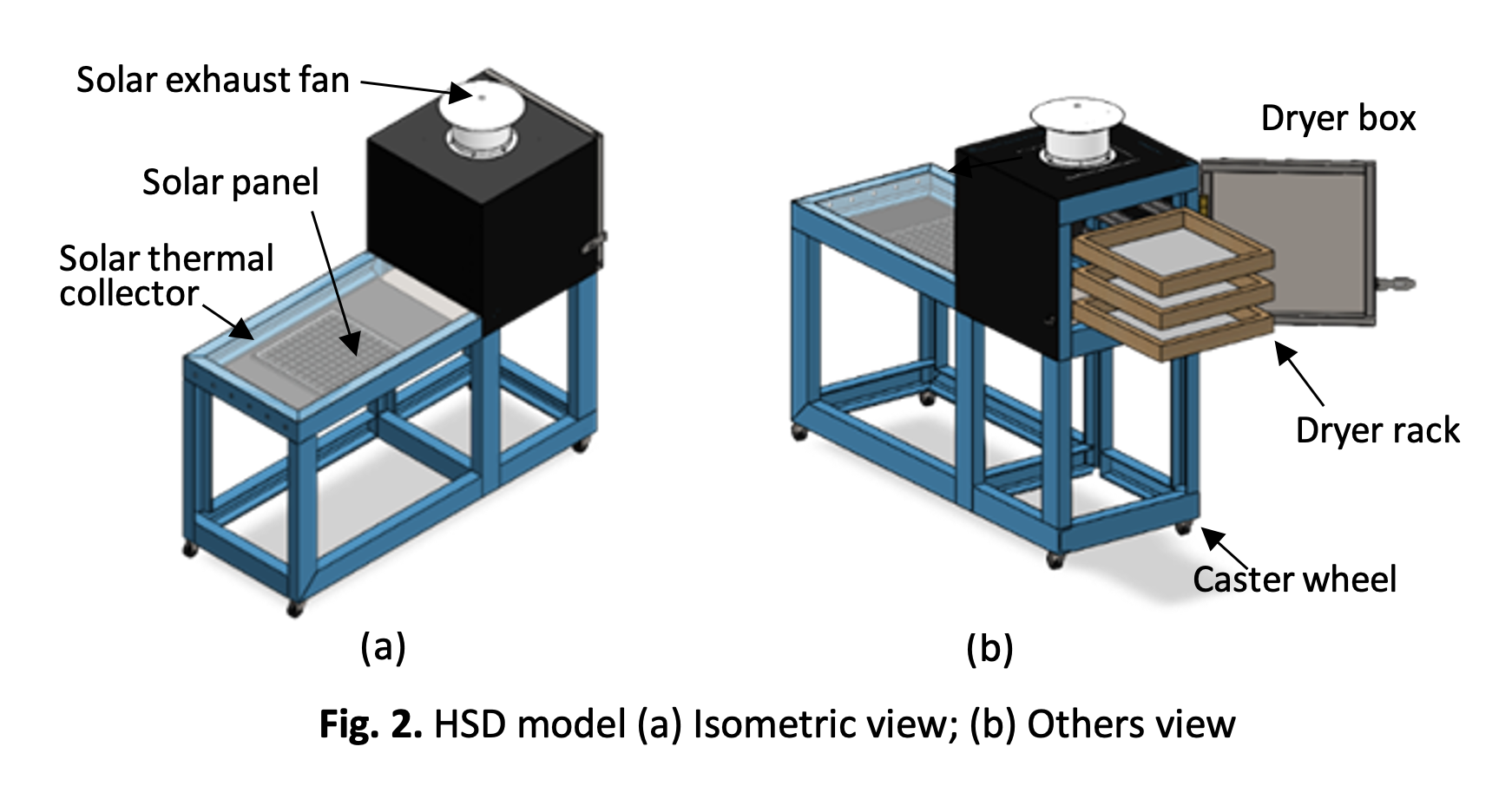Design and Performance Evaluation of Hybrid Photovoltaic Thermal Solar Dehydrator
DOI:
https://doi.org/10.37934/araset.28.2.181189Keywords:
Dehydrator, hybrid photovoltaic thermal solar, food dryingAbstract
This paper reported on the design and performance evaluation of a hybrid photovoltaic thermal solar dehydrator. The dehydrator is designed to suit the needs of household users and small industries and works using a hot air mechanism. The design process commenced with the initial sketches to collect related ideas and design concepts. The design was then proceeded to concept evaluation through a decision matrix to select the best option. The final design was then converted via computer-aided design (CAD), SolidWorks 2021 to a 3D model and fabricated into a full-scale prototype. The drying performance of the dehydrator on food was evaluated and compared with traditional drying under the meteorological conditions of Panchor, Muar, Malaysia. Heat accumulated inside the dehydrator resulted in a temperature of 44.1 degrees Celsius which is 20 % higher than the ambient temperature. The performance analysis demonstrated that the drying speed of a hybrid solar dehydrator is moderately slower than traditional drying, but it provided a more hygienic drying environment and preserved the color and nutrition value of food products.Downloads
Download data is not yet available.

Downloads
Published
2022-10-22
Issue
Section
Articles



























